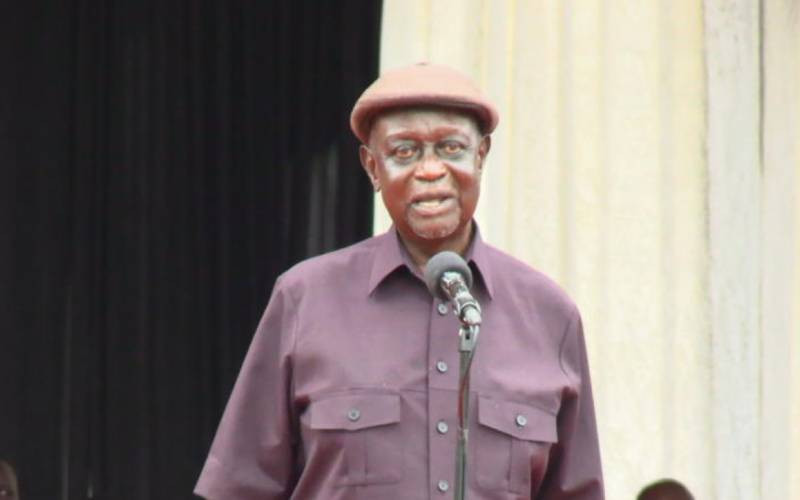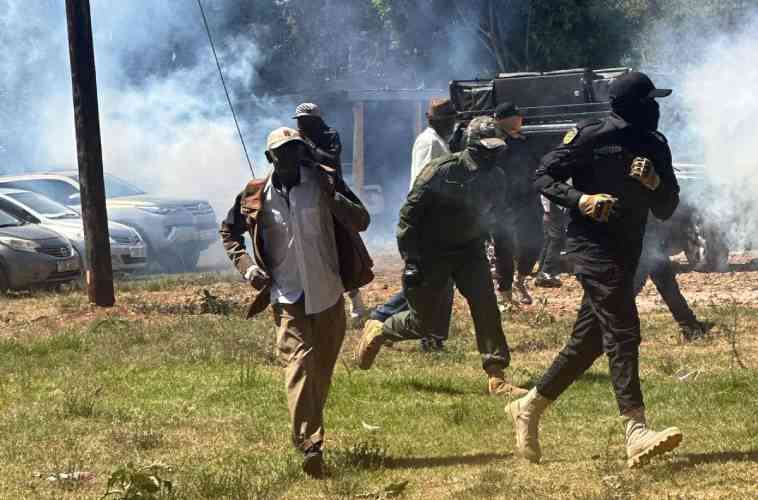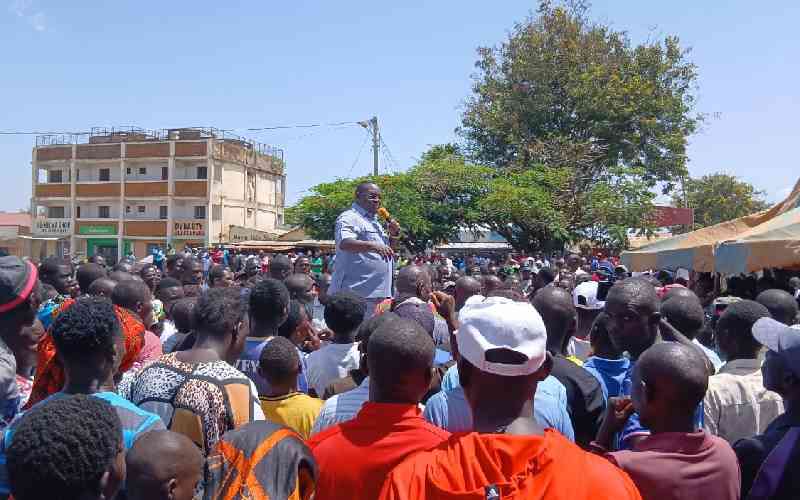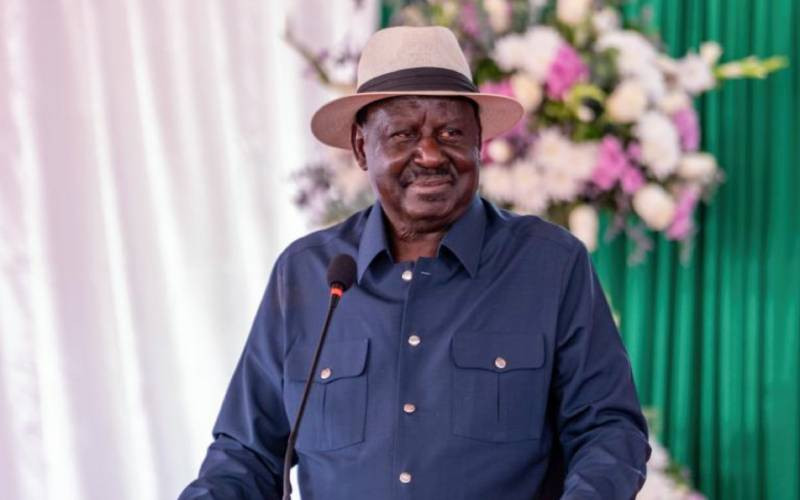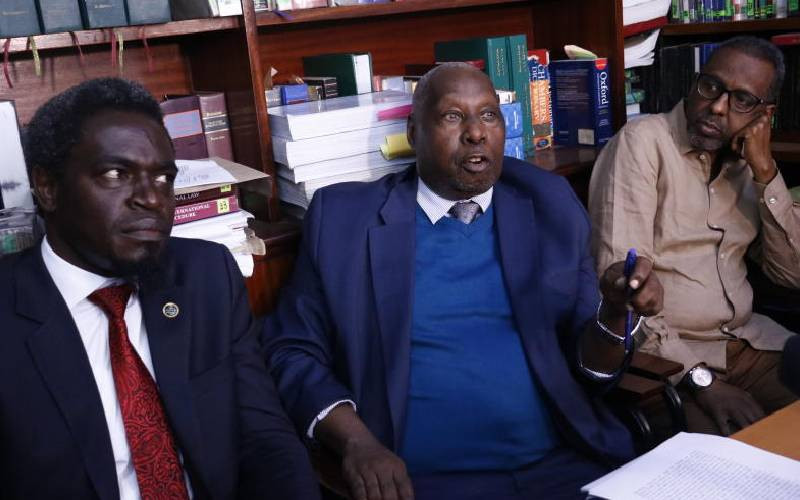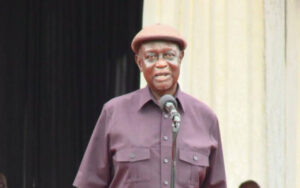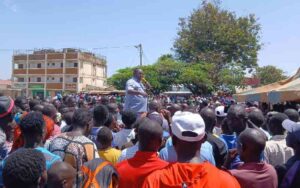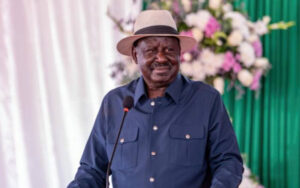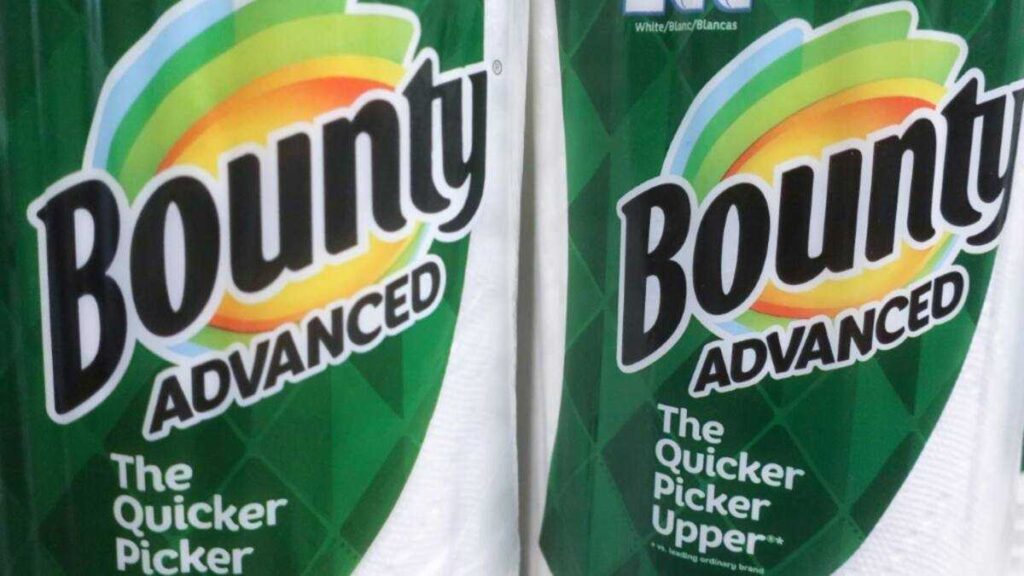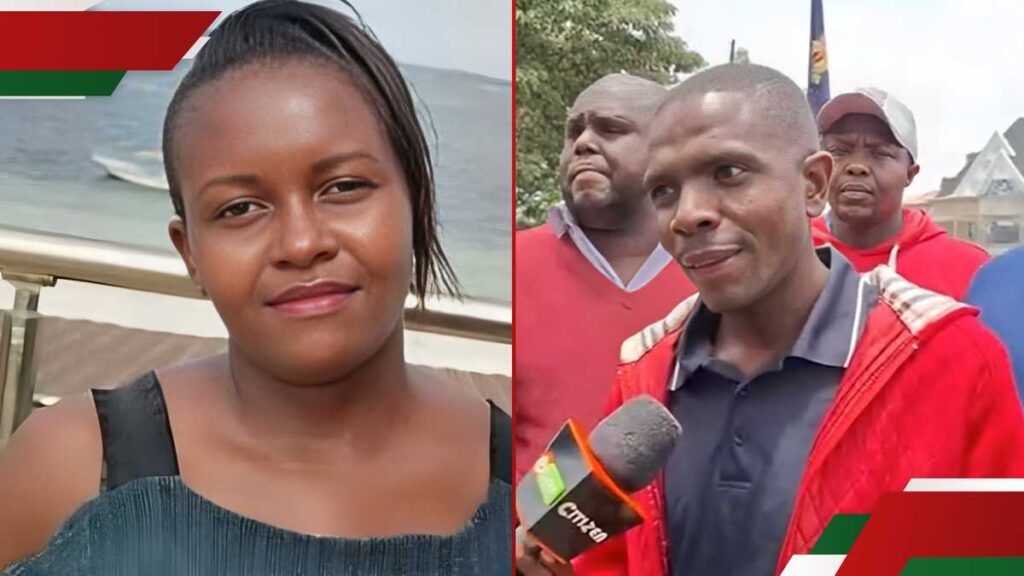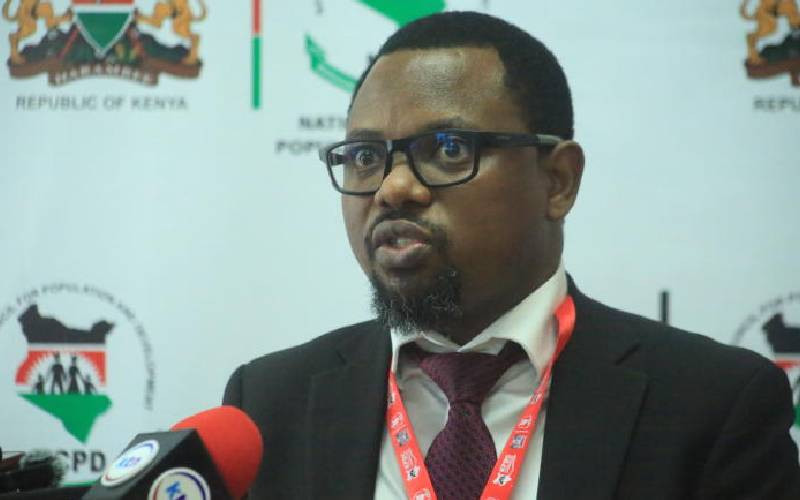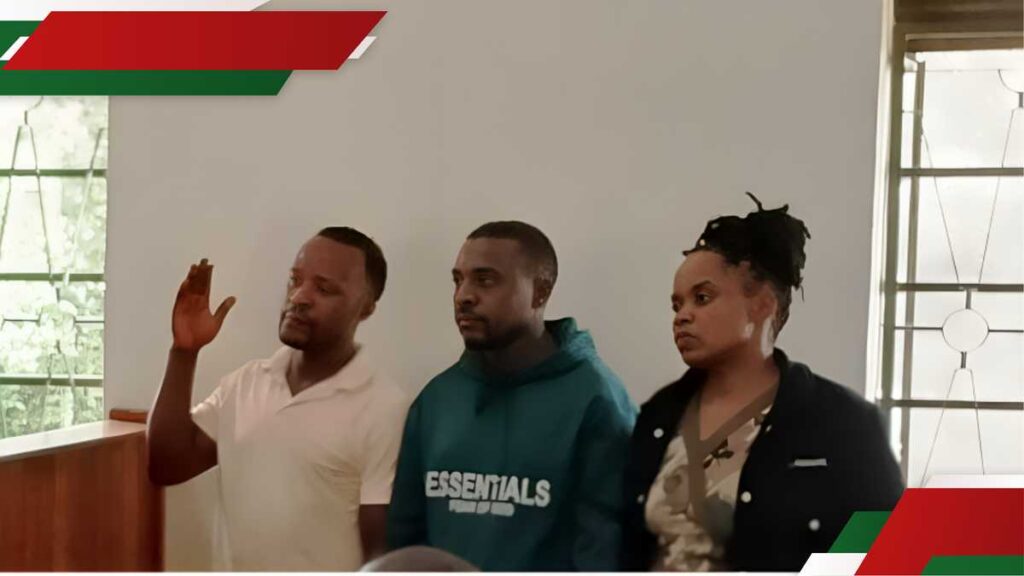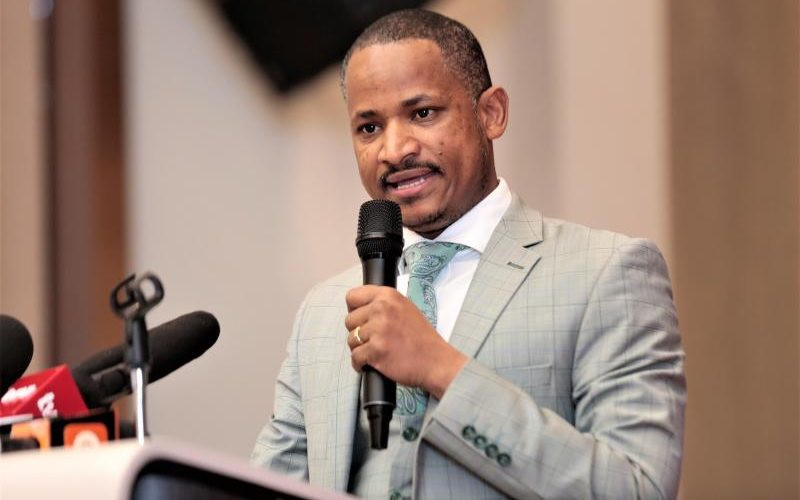A story is told of a child who had the habit of climbing on top of a tree, and crying out “Leopard! Leopard!”, alerting villagers to come to his rescue, but they would find none.
When the leopard finally attacked, there was no one to help.
Could it be the case of alleged corruption calls against the Judiciary?
Another fairy tale ‘The emperor has no clothes’ narrated in 1987 by Hans Christian tells of the fall of an emperor who is convinced by those closest to him to wear an invisible suit but in reality he is naked.
Those who see him never tell him out of fear of losing their status. It takes a child to call out his nakedness for everyone to join in.
Could the Judiciary be the emperor and lawyers Ahmednasir Abdullahi and Nelson Havi are the child with a voice that has now gained momentum against alleged corruption in the third arm of government?
On Friday, Abdullahi, Havi and veteran lawyer Gibson Kamau Kuria called on Kenyans and their fellow advocates to send to the President of the Law Society of Kenya (LSK) Faith Odhiambo reports about their experiences in the corridors of justice for a radical surgery.
The trio read the statement also signed by senior counsel Paul Muite.
They claimed that persons and advocates are buying their way to the hearts and minds of judicial officers.
They gave an example of land cases. Kuria alleged that he was a victim of land grabbing. He alleged that on April 14, 2023 police officers from Hardy Police Station, Karen, declined his call for assistance when his home was invaded
“In the present-day Kenya, some judicial officers, advocates and court staff only recognise duty to themselves. Any advocate or judicial officer who engages in corruption violates his duty to the State as stated in Article 4 of the Constitution. Participants in corruption in the justice organs as far as the courts are concerned are judicial officers, advocates of the High Court, Deputy Registrars, Executive and other officers and court clerks,” said Kuria.
The trio further alleged that either the Judicial Service Commission (JSC) is overwhelmed with complaints against judges and magistrates or it is not functioning as it should.
Kuria claimed that he has two complaints before the JSC, filed this year, which he alleged to have not yet got a response.
Asked about whether their claims could also be attributed to the failure of Law Society of Kenya (LSK), which has two representatives in the JSC, the three claimed that it depends on personalities of the male and female representatives.
Stay informed. Subscribe to our newsletter
Abdullahi alleged that during his tenure in the JSC, they sent home former Deputy Chief Justice Kalpana Rawal and Justice Phillip Tunoi.
Nevertheless, the two left the Judiciary over the 70 years retirement age battle that had rocked the highest court.
After JSC served Rawal and Tunoi with retirement notices, they moved to the High Court, arguing that they were to retire at 74.
The High Court dismissed the twin cases. They moved to the Court of Appeal which upheld the 70 years age.
At the Supreme Court, there was a quorum hitch as then Chief Justice Willy Mutunga and Justice Smokin Wanjala could not sit being members of JSC.
Rawal and Tunoi could not hear their own case which left then Justices Jackton Ojwang (retired) and Justice Mohammed Ibrahim available to sit.
“You see, the JSC has 11 members, most of them are elected by government. I tell guys that the only serious and democratically elected are members of the Law Society of Kenyans. The other members are elected by seven people like the Supreme Court. It is true that is our voice and it depends on the person. When I was there, people used to say I run the JSC. For me my constituency is the most important one. I speak for my constituency and the clients they represent, more so if there is something like this,” Abdullahi said.
“Look at how many Judges, you can go and see how may tribunals were formed, we removed the Deputy Chief Justice, we removed two judges of the Supreme Court, Justice Tunoi and Rawal. We had so many complaints against the Supreme Court itself, of course everything depends on the members. Some members are robust, some members are very assertive, some are not but it is true our members should spearhead. The dominant party in the JSC are Judges and Magistrates and they are very protective of their tuff,” Abdullahi claimed.
They put the bulk of their claims on the Chief Justice Martha Koome.
According to Havi, the Chief Justice bore the responsibility as the head of the Judiciary.
Abdullahi said that it is the nature of the LSK to put the CJ on check.
The three were also asked whether there are specific judges who they want to put on notice.
Kuria answered that: “We are calling for establishment of a data bank because we want to collect evidence and so, we say we can give examples but rule of law requires, that if I can say you might have heard, the lawyer can be a devil’s advocate.
What this means is that we know from Christian background that it is certain that it is the devil who causes things but there are things that the devil may not have done. We have to give people who are wronging Kenyans a chance to defend themselves, we cannot name them.” Abdullahi acknowledged that their statement was without particulars. He nevertheless claimed that it was a start of a long journey.
“We have started a first step to say that there is a problem in the justice sector. We are using the issue of title as an example. It could apply to children case; it could apply to a commercial matter. The thing we are saying is that let us collect this data of all this maleficence, all this corruption, and once we have this data, the next logical steps we will share how we will move forward. This is the baby step we are taking. We are at a critical juncture and there is a huge problem facing the Judiciary and we are not naming like I do so and so, those are my own personal views,” said Abdullahi.
The Saturday Standard called the LSK President, seeking to ask her about the Judiciary meeting and the memorandum submitted to the Judiciary. She neither picked our calls nor responded to our text message.
However, her deputy, Mwaura Kabata said that the Judiciary leadership and LSK had agreed to meet on February 7 next year for a way forward.
He said that they discussed about corruption and enhancing relationship between the bar and the bench.
“We agreed on the question that there is a problem and the problem is corruption. We agreed that we need to act on it and have a working formula to eliminate it. We agreed to meet on February 7, so that we see a way forward but our rallying call is that vetting of Judges should be an annual process based on an appraisal and that LSK to gather instances of corruption which will be forwarded to the Judicial Service Commission and finally since Judges and magistrates are members of the society, we are looking forward to enhance relationship and we are working with the Kenya Magistrates and Judges Association (KMJA),” said Kabata.
In the meantime, Justice Martha Koome had invited Abdullahi to present his evidence to a team set up to look into the graft claims.
The CJ said that she had also forwarded a letter by PLO Lumumba to the National Intelligence Service, Inspector General of Police, Directorate of Criminal Investigations and Ethics and Anti-corruption Commission (EACC) to carry out an in-depth investigation on Judges and Magistrates to enable JSC make a decision.
“I have directed the secretary of the Judicial Service Commission to deploy an investigative team drawn from the JSC to engage with Ahmednasir Abdullahi with a view to obtaining particulars of the allegations made on the social media platform X with a view to progressing the complaints (if comprehensively and fully made) to the Judicial Service Commission for action. I ask Ahmednasir Abdullahi to cooperate with the officers from the JSC if indeed then allegations made are in good faith and with a view to ensuring that the Judiciary operates in an open and transparent manner for the benefit of all Kenyans,” said Koome.
The CJ said that in the last financial year, some 141 petitions were received touching on the conduct of judges out of which 70 petitions, seven complaints touching on judicial officers were processed and three of these complaints concluded.
The commission also registered 116 disciplinary cases against staff, out of which the bulk of it was absence from duty at 58 complaints. In addition, 11 complaints touched on soliciting and receiving a bribe. Out of these cases, 51 have been concluded, she said.
“I encourage EACC, Office of the Director of Public Prosecutions and the Police to hasten investigations especially on the allegations of corruption which have been reported,” said Koome
Yesterday, asked by this reporter whether he had met with the team, Abdullahi said that CJ does not have a locus, meaning she has no authority or right to invite him.
In her statement, Koome said the persistent allegations highlighted on the social media platform X by Abdullahi did not identify the judge(s) alleged to be involved in corruption or the alleged intermediaries collecting bribes on their behalf.
“It is worth recalling that in a previous case involving specific and actionable allegations made by former Nairobi Governor Mike Sonko, the JSC promptly took action and addressed the claims to their logical conclusion,” she said.
KMJA expressed concern over claims by Havi and Abdullahi.
The lobby headed by Justice Stephen Radido said that the attacks had taken centre stage, instead of the aggrieved persons filing formal complaints.
According to them, this was meant to destabilise the Judiciary.
“The association, therefore, condemns the ongoing and escalating public attacks on the Judiciary. These attacks only serve to undermine its integrity and authority. The recent incidents in which judges and judicial officers have been personally attacked on social media, albeit very callously and unfairly, with ill-conceived insults, degrade their important role in our democracy and are a recipe for crippling our institutions, choking the independence of our judicial institutions, and ultimately degenerating into a state of lawlessness. This is unacceptable,” the statement read in part.


